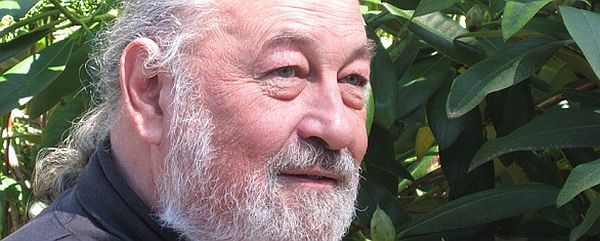Puerto Vallarta, México - Rudolph C. Ryser, Chairman of the Center for World Indigenous Studies (Olympia, WA) and a member of the Capella University faculty in the School of Public Service Leadership (Minneapolis, MN) has been awarded a Fulbright Scholar grant to conduct research in western México and deliver lectures at the Universidad del Valle de Atemajac (UNIVA) in Puerto Vallarta, México during the 2011-2012 academic year, according to the United States Department of State and the J. William Fulbright Foreign Scholarship Board. Dr. Ryser is a resident of Olympia, Washington and an alumnus of Washington State University.
Dr. Ryser is the second member of the Center for World Indigenous Studies to receive a Fulbright Award. Dr. Leslie E. Korn, Director of the Center for Traditional Medicine was awarded a Fulbright during the 2010-2011 academic year. "I consider the Fulbright Scholars' awards to members of the Center a personal honor for the recipients and prestigious recognition of the Center's excellent work for the benefit of indigenous peoples," said Ryser upon being notified of his award.
Dr. Ryser's research will examine the contributions of indigenous knowledge systems to modern food security and adaptation strategies in response to the adverse affects of climate change. His research will focus on successful adaptation strategies employed by the original peoples of west México that promoted food security during the period preceding Hispanic arrival up to 1520.
His work will seek to answer the question: How do historic west Mexican indigenous peoples' observations about food strategies in response to climate change inform our knowledge base, and how can current adaptation ideas and/or strategies contribute to policy decision-making?
Dr. Ryser will compare his findings with his companion inquiry on the same topic involving the Quinault Indian Nation, the Quileute Nation and Makah Nation in the US Pacific Northwest. The results will be of benefit to the contributing indigenous communities as well as México and the United States.
He will share his analysis with faculty and students by delivering a series of lectures on food policy and non-governmental organizations at his host institution, the Universidad del Valle de Atemajac. The results of his research will also be shared with the United Nations Nairobi Work Program, UNESCO and the United Nations Permanent Forum on Indigenous Peoples' Issues.
Dr. Ryser (aka Rudy) will deliver a public lecture in February, 2012 hosted by the Vallarta Botanical Gardens and UNIVA.
The Fulbright Program is the flagship international educational exchange program sponsored by the U.S. government and is designed to increase mutual understanding between the people of the Unite States and the people of other countries. The primary source of funding for the Fulbright Program is an annual appropriation made by the U.S. Congress to the U.S. Department of State, Bureau of Educational and Cultural Affairs.
Participating governments and host institutions, corporations and foundations in foreign countries and in the United States also provide direct and indirect support. Recipients of Fulbright grants are selected on the basis of academic or professional achievement, as well as demonstrated leadership potential in their fields. The Program operates in over 155 countries worldwide.
Since its inception in 1946 under legislation introduced by the late U.S. Senator J. William Fulbright of Arkansas, the Fulbright Program has given approximately 300,000 students, scholars, teachers, artists, and scientists the opportunity to study, teach and conduct research, exchange ideas and contribute to finding solutions to shared international concerns.
Fulbright alumni have achieved distinction in government, science, the arts, business, philanthropy, education, and athletics. Forty-three Fulbright alumni from 11 countries have been awarded the Nobel Prize, and 75 alumni have received Pulitzer Prizes.
Prominent Fulbright alumni include: Muhammad Yunus, Managing Director and Founder, Grameen Bank, and 2006 Nobel Peace Price recipient; John Atta Mills, President of Ghana; Lee Evanas, Olympic Gold Medalist; Ruth Simmons, President, Brown University; Riccardo Giacconi, Physicist and 2002 Nobel Laureate; Amar Gopal Bose, Chairman and Founder, Bose Corporation; Renée Fleming, soprano; Jonathan Franzen, Writer; and Daniel Libeskind, Architect.
Fulbright recipients are among over 40,000 individuals participating in U.S. Department of State exchange programs each year. For more than sixty years, the Bureau of Educational and Cultural Affairs has funded and supported programs that seek to promote mutual understanding and respect between the people of the United States and the people of other countries. The Council for International Exchange of Scholars, a division of the Institute of International Education, administers the Fulbright U.S. Scholar Program.
For further information about the Fulbright Program or the U.S. Department of State's Bureau of Educational and Cultural Affairs, please visit the Fulbright website or contact James A. Lawrence, Office of Academic Exchange Programs, telephone 202-632-3241 or email Fulbright(at)state.gov. You may also visit the Center for World Indigenous Studies website at cwis.org or contact him directly at chair(at)cwis.org
 Dr. Leslie Korn specializes in integrative mind body medicine for the treatment of PTSD and chronic illness. She did her graduate training at Harvard Medical School where she introduced bodywork to the department of psychiatry and conducted ethnobotanical research on Papaya. She began her research in Cabo Corrientes in 1974, and was a 2009-2010 Mexico Fulbright scholar. She currently divides her time between PV and Washington. To learn more about her work, visit DrLeslieKorn.com.
Dr. Leslie Korn specializes in integrative mind body medicine for the treatment of PTSD and chronic illness. She did her graduate training at Harvard Medical School where she introduced bodywork to the department of psychiatry and conducted ethnobotanical research on Papaya. She began her research in Cabo Corrientes in 1974, and was a 2009-2010 Mexico Fulbright scholar. She currently divides her time between PV and Washington. To learn more about her work, visit DrLeslieKorn.com.Click HERE to read more articles by Leslie Korn.



